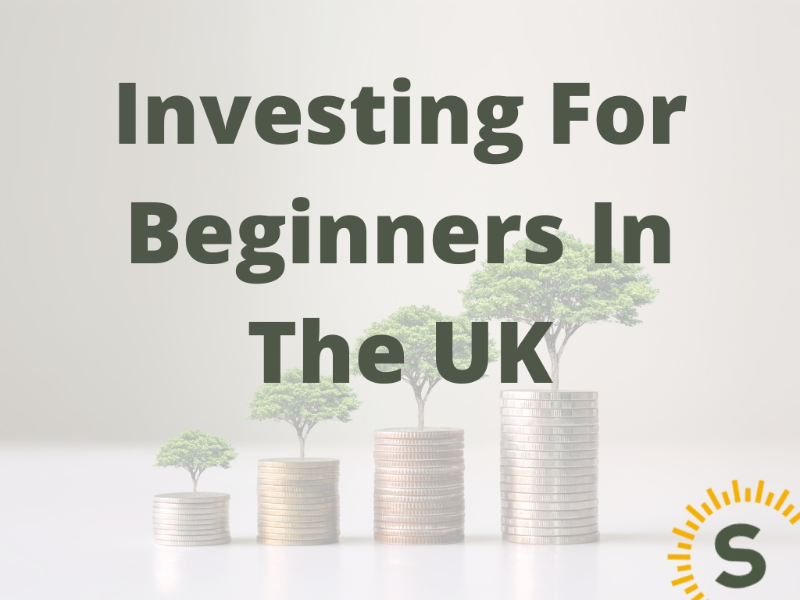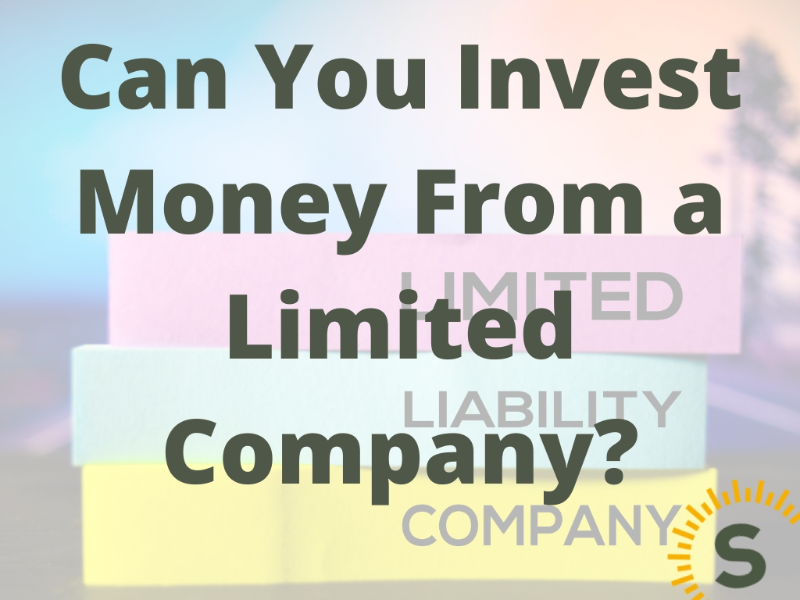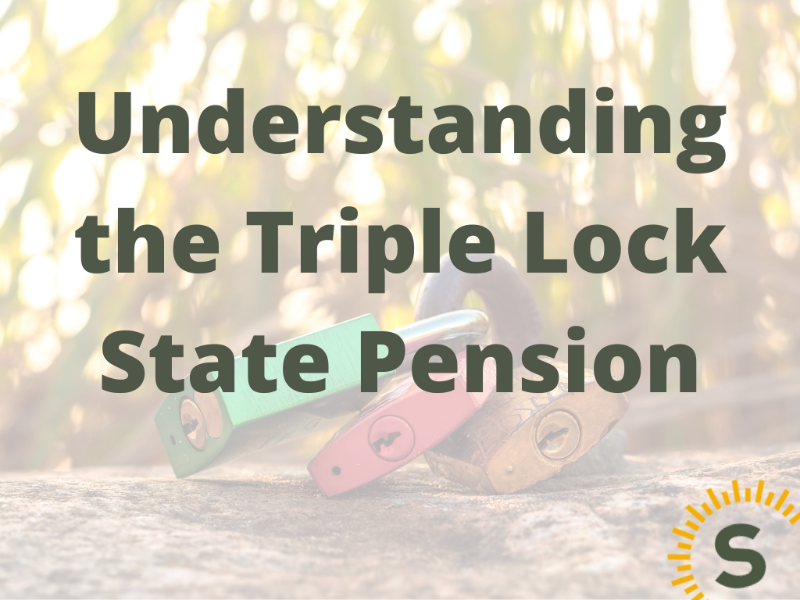
Are you new to the world of investing? Wondering how to make your money work for you? This investing for beginner's insight is specifically designed for you. Investing may seem intimidating at first, but with the right knowledge and guidance, you can start growing your wealth and achieving your financial goals.
we will walk you through the basics of investing, from understanding different investment options to developing a personalised investment strategy. Whether you're interested in stocks, bonds, funds, or property, we'll cover it all.
Investing is the process of allocating money or resources with the expectation of generating a return or profit over time. It involves putting your money into various assets, such as stocks, bonds, mutual funds, or real estate, with the aim of growing your wealth. Unlike saving, which typically involves storing money in a bank account, investing allows your money to work for you and potentially earn higher returns.
Investing involves taking on some level of risk, as the value of investments can fluctuate. However, by understanding the principles of investing and developing a well-thought-out strategy, you can minimise risk and maximise your potential for long-term growth.

Investing is crucial for achieving your financial goals, whether you want to save for retirement, buy a house, or fund your children's education. By investing your money wisely, you can potentially earn higher returns than traditional savings accounts, which often offer low-interest rates.
Investing also helps to combat inflation. Over time, the cost of goods and services typically increases, reducing the purchasing power of your money. By investing in assets that have the potential to outpace inflation, you can protect your wealth and maintain your standard of living.
While saving is an essential part of financial stability, investing offers the opportunity for greater returns. Saving typically involves putting money into a bank account or a savings account, where it earns interest over time. However, the interest rates offered by these accounts are often low, and they may not keep pace with inflation.
Investing, on the other hand, allows you to put your money into assets that have the potential to grow in value. While investing involves taking on some level of risk, it also offers the possibility of earning higher returns. By diversifying your investments and adopting a long-term approach, you can mitigate risk and increase your chances of achieving your financial goals.
When it comes to investing, there are various options to choose from. Here are some of the most common types of investments:
Stocks, also known as equities, represent ownership in a company. When you purchase shares of stock, you become a shareholder and have a claim on the company's assets and earnings. The value of stocks can fluctuate based on various factors, such as the company's financial performance, industry trends, and market conditions. Investing in stocks can offer the potential for high returns, but it also carries a higher level of risk.

When the company you hold shares in performs well, you can often receive bonus payments, known as dividends. Essentially, it's a share of the company's profits. If the company does not perform well, you may not get a dividend at all. If you are investing for a regular income, it is a good idea to consider investing in stocks that pay a dividend.
Bonds are debt securities issued by governments, municipalities, or corporations to raise capital. When you purchase a bond, you are essentially lending money to the issuer in exchange for periodic interest payments and the return of the principal amount upon maturity. Bonds are generally considered less risky than stocks, as they offer fixed interest payments and have a predetermined maturity date.
When you buy a bond, you become the bondholder, and you lend money to the issuer of the bond. You're paid your interest regularly via a bond coupon. At the end of the bond maturity, you get your money back.
Funds pool money from multiple investors to invest in a diversified portfolio of stocks, bonds, or other assets. They are managed by professional fund managers who make investment decisions on behalf of the investors. Funds offer diversification and are suitable for investors who prefer a hands-off approach. They can be a good option for beginners looking to invest in a wide range of assets.
Trackers follow the performance of an index. An index is a collection of shares, such as the FTSE 100, or S&P 500. If you invest in a tracker, you are able to invest in the performance of all these shares without the need to buy each share individually. Tracker Funds can also be a good option for beginners.
An exchange-traded fund works in a similar way to a mutual fund. However, these units are available to be traded on certain exchanges and are listed alongside a price so you can easily see if the value of the ETF is increasing or decreasing.
Investing in property involves purchasing properties, such as houses, apartments, or commercial buildings, with the expectation of earning rental income or capital appreciation. Real estate can be a lucrative investment, but it requires careful research and due diligence. Investing in property can provide a steady stream of income and potential tax benefits. However, the barriers to entry are high as a large deposit is often required.
Getting started with investing may seem daunting, but with the right approach, it can be a rewarding experience. Here are some steps to help you begin your investment journey:
Before you start investing, it's important to define your investment goals. What are you investing for? Are you saving for retirement, buying a house, or funding your children's education? Setting clear and specific goals will help you determine the appropriate investment strategy and time horizon.
Every investment carries some level of risk. Understanding the relationship between risk and return is key to making informed investment decisions. Generally, investments with higher potential returns also come with higher levels of risk. It's important to assess your risk tolerance and invest accordingly.
Diversification is an essential principle of investing. By spreading your investments across different asset classes, industries, and geographical regions, you can reduce the impact of any single investment on your overall portfolio. Diversification helps to mitigate risk and increase the potential for long-term growth.
As a beginner investor, it's important to adopt a strategy that aligns with your goals, risk tolerance, and investment knowledge. Here are a few strategies to consider:
This strategy involves investing a fixed amount of money at regular intervals, regardless of market conditions. By investing consistently over time, you can take advantage of market fluctuations and potentially lower your average cost per share.
This strategy involves buying investments with the intention of holding onto them for the long term. It requires patience and a long-term outlook. By focusing on the underlying fundamentals of the investments, rather than short-term market fluctuations, you can potentially earn higher returns.
Index funds are mutual funds or exchange-traded funds (ETFs) that aim to replicate the performance of a specific market index, such as the S&P 500. They offer diversification and low fees, making them a popular choice for beginner investors.
Despite the potential benefits, investing also comes with risks that should not be overlooked. Markets can be unpredictable, and even the most well-researched investments can go south. It's important to have a clear understanding of your risk tolerance and financial goals before diving into the world of investing.
One of the primary risks of investing is the possibility of losing your principal. The value of investments can fluctuate, and if you need to sell at a time when the market is down, you may experience losses. Another risk to consider is the potential for fraud or scams. In the world of investing, there are always individuals looking to take advantage of unsuspecting investors.
Before deciding whether investing is worth it for you, there are several factors to consider. First and foremost, you need to assess your financial situation and risk tolerance. Investing should only be done with money that you can afford to lose, as there are no guarantees of positive returns. It's also important to have a clear understanding of your financial goals. Are you investing for short-term gains or long-term wealth accumulation? This will influence the types of investments and strategies you should consider.
Additionally, it's crucial to have a solid emergency fund in place before investing. This fund should cover at least three to six months' worth of living expenses and act as a safety net in case of unexpected financial setbacks. Without an emergency fund, you may be forced to sell your investments at an inopportune time, resulting in losses.
To maximise your chances of success as an investor, here are some tips to keep in mind:
Before investing in any asset, thoroughly research the investment opportunity, including the company or property you are considering.
Spread your investments across different asset classes and sectors to reduce risk.
Keep up-to-date with market trends, economic news, and any regulatory changes that may impact your investments.
Investing is a long-term game. Avoid making impulsive decisions based on short-term market fluctuations.
If you are unsure about a particular investment or need guidance in developing your strategy, consider consulting with a financial adviser.
These are fees you pay to a broker for helping you buy and sell stocks. They can vary a lot, like a fixed amount or a percentage of your trade value. You should choose a broker carefully, considering how these fees affect your overall costs.
Some brokers charge these regularly (monthly or annually) to manage your investment account. The amount varies, so compare different brokers to find the most affordable option for you.
If you invest in funds or ETFs, the fund manager charges fees for managing the investments. It's a percentage of the total assets they handle, and you should think about how these fees affect your returns.
Some platforms charge fees for certain types of trades or investments, like options or futures. These can be per-trade or a percentage of the trade value. Make sure you understand your platform's transaction fee structure.
Be cautious about fees not clearly mentioned, like redemption fees, account transfer fees, wire transfer fees, or extra services from your broker or platform. Look at the terms and fees to avoid unexpected costs and protect your returns.
In the UK, taxes are important to consider when you invest your money. When you make a profit from selling investments, you might need to pay something called Capital Gains Tax. The amount you pay can depend on how much you earn and what you're selling.
However, there are ways to invest more tax-efficiently. One popular option is an Individual Savings Account (ISA). With an ISA, you don't have to pay Capital Gains Tax or income tax on any money you make from your investments. It's like a tax-free savings account for your investments.
Pensions are another tax-friendly option. When you put money into a pension, you might get a tax break, and when you retire, you can usually take some of the money out without paying tax.
The UK government also offers special tax incentives for investing in small or startup companies, which can be a good opportunity if you're interested in supporting these businesses.
Remember, it's a good idea to talk to a tax advisor or financial expert to make sure you're making the best choices for your financial situation. They can help you navigate the tax rules and plan your investments smartly.
To invest in stocks in the UK, follow these simple steps:
Start by choosing what you want to invest in, like stocks, bonds, funds, or commodities. Many beginners opt for funds, like index funds or ETFs, which are easier and safer than buying individual stocks because you share risks and costs with others.
You can buy investments through various platforms like banks, brokers, fund supermarkets, robo-advisers, or trading apps. Your choice depends on your goals, knowledge, and personal situation. Look for platforms that suit beginners.
A tax wrapper helps reduce the taxes you pay on your investment gains. Common ones in the UK include:
Remember, the right choice depends on your financial goals and circumstances. It's a good idea to do some research and possibly consult a financial adviser to make informed decisions.
The amount of money a beginner should have before investing varies depending on individual circumstances and financial goals. Here are some general guidelines to consider:
Before investing, make sure you have an emergency fund in place. This fund should cover at least three to six months' worth of living expenses. It acts as a financial safety net in case unexpected expenses or emergencies arise. It's essential to have this fund to avoid having to sell investments prematurely if you need cash urgently.
If you have high-interest debt, such as credit card debt, it's usually advisable to prioritise paying it off before investing. High-interest debt can quickly erode your wealth, and paying it down offers a guaranteed return on your money.
You should only invest money that you can afford to set aside for the long term. Don't invest funds that you'll need for upcoming bills or expenses. Make sure you have a stable source of income to cover your daily living costs.
You don't need a large sum of money to begin investing. Many online brokerage platforms allow you to start with relatively small amounts of money. Some even offer fractional shares, which let you invest in fractions of a single share of a stock or exchange-traded fund (ETF). This makes it more accessible for beginners with limited funds to get started.
Remember that investing is a complex topic, and there is always more to learn. Beginners should approach it with a willingness to educate themselves continually and consider seeking advice from financial professionals when making important investment decisions.

Stuart is an expert in Property, Money, Banking & Finance, having worked in retail and investment banking for 10+ years before founding Sunny Avenue. Stuart has spent his career studying finance. He holds qualifications in financial studies, mortgage advice & practice, banking operations, dealing & financial markets, derivatives, securities & investments.
 No minimum
No minimum  Newcastle-under-Lyme, Staffordshire
Newcastle-under-Lyme, Staffordshire Free Consultations
Free Consultations
 No minimum
No minimum  Free Consultations
Free Consultations
 No minimum
No minimum  No obligation consultation
No obligation consultation
 £51,000+
£51,000+  No obligation consultation
No obligation consultation
 No minimum
No minimum  No obligation consultation
No obligation consultation
 No minimum
No minimum  No obligation consultation
No obligation consultation
 £51,000+
£51,000+  Free Consultations
Free Consultations
 No minimum
No minimum  No obligation consultation
No obligation consultation
 £51,000+
£51,000+  Free Consultations
Free Consultations
 No minimum
No minimum  Leicester, Leicestershire
Leicester, Leicestershire Initial fee free consultation
Initial fee free consultation
 £101,000+
£101,000+  Stockton-on-Tees, County Durham
Stockton-on-Tees, County Durham Initial fee free consultation
Initial fee free consultation
 No minimum
No minimum  No obligation consultation
No obligation consultation
 No minimum
No minimum  Coatbridge, Lanarkshire
Coatbridge, Lanarkshire Initial or Ongoing Consultation Fees
Initial or Ongoing Consultation Fees
 No minimum
No minimum  Initial or Ongoing Consultation Fees
Initial or Ongoing Consultation Fees
 No minimum
No minimum  No obligation consultation
No obligation consultation
 No minimum
No minimum  No obligation consultation
No obligation consultation





Our website offers information about financial products such as investing, savings, equity release, mortgages, and insurance. None of the information on Sunny Avenue constitutes personal advice. Sunny Avenue does not offer any of these services directly and we only act as a directory service to connect you to the experts. If you require further information to proceed you will need to request advice, for example from the financial advisers listed. If you decide to invest, read the important investment notes provided first, decide how to proceed on your own basis, and remember that investments can go up and down in value, so you could get back less than you put in.
Think carefully before securing debts against your home. A mortgage is a loan secured on your home, which you could lose if you do not keep up your mortgage payments. Check that any mortgage will meet your needs if you want to move or sell your home or you want your family to inherit it. If you are in any doubt, seek independent advice.